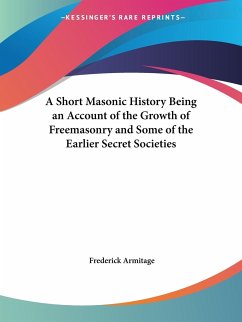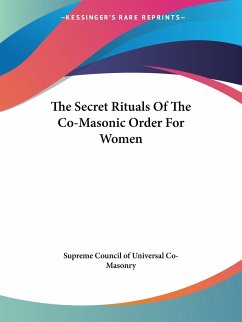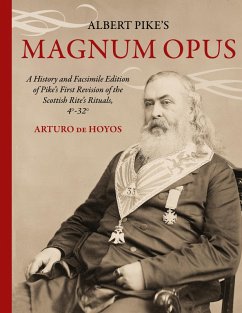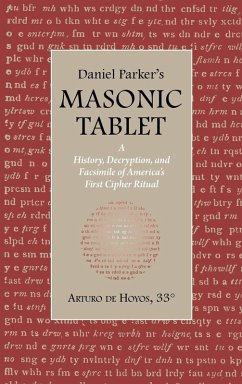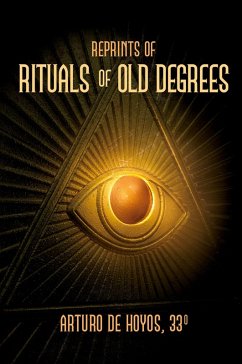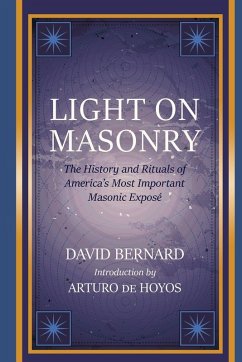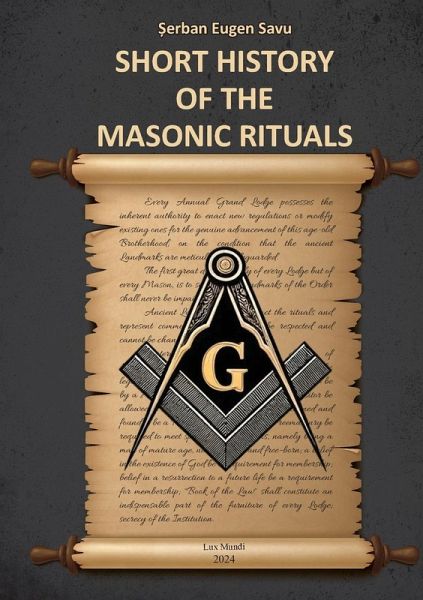
SHORT HISTORY OF THE MASONIC RITUALS
Versandkostenfrei!
Versandfertig in 1-2 Wochen
13,99 €
inkl. MwSt.

PAYBACK Punkte
7 °P sammeln!
"Short History of the Masonic Rituals" by Șerban Eugen Savu is an English-language book that delves into the origins and development of Masonic rituals, beginning with the emergence of speculative Freemasonry in early 18th-century England. By 1751, English Freemasonry witnessed a significant reorganization, establishing two predominant factions: the "Moderns" and the "Ancients." The book highlights how the diversity of Masonic rituals reflects their global spread, even before 1731, when the English Masonic ritual was still forming. The distinctive elements introduced by French Lodges before 1...
"Short History of the Masonic Rituals" by Șerban Eugen Savu is an English-language book that delves into the origins and development of Masonic rituals, beginning with the emergence of speculative Freemasonry in early 18th-century England. By 1751, English Freemasonry witnessed a significant reorganization, establishing two predominant factions: the "Moderns" and the "Ancients." The book highlights how the diversity of Masonic rituals reflects their global spread, even before 1731, when the English Masonic ritual was still forming. The distinctive elements introduced by French Lodges before 1813 mirror the rich French cultural and philosophical landscape, blending philosophical ideals, artistic sensibilities, and the values of liberty, equality, and fraternity. This work offers a balanced perspective on the complexity and allure of Freemasonry, emphasizing the importance of unchangeable elements in preserving Masonic heritage and exploring the unique features of various Masonic rites. The origins and development of Masonic rituals are deeply intertwined with the rise of speculative Freemasonry in early 18th-century England. By 1751, a significant reorganization occurred within English Freemasonry, establishing two predominant factions: the "Moderns" and the "Ancients."Understanding the diversity within Freemasonry's rituals requires acknowledging its global spread, which began well before 1731 when the English Masonic ritual was still taking shape. Within Freemasonry, certain core elements and structures are universally observed across all Lodges regardless of the jurisdiction or specific ritual practiced. The French Lodges introduced various distinctive elements to the Masonic rituals that had originated in England before 1813. These modifications reflected the rich tapestry of French culture and thought, incorporating philosophical ideals, artistic sensibilities, and the values of liberty, equality, and fraternity that were emblematic of the era. Freemasonry's harmonious blend of uniformity and diversity is vividly reflected through the distinctive variations and, intriguingly, in the unique character of the various rites. Highlighting the importance of unchangeable elements in preserving Masonic heritage while also inviting exploration of the unique features of various Masonic Rituals offers a balanced view of the fraternity's complexity and appeal.Additionally, this balance between consistency and variety, contributing to its members' personal and collective growth, could offer a deeper insight into Freemasonry's value and significance in the modern world.



